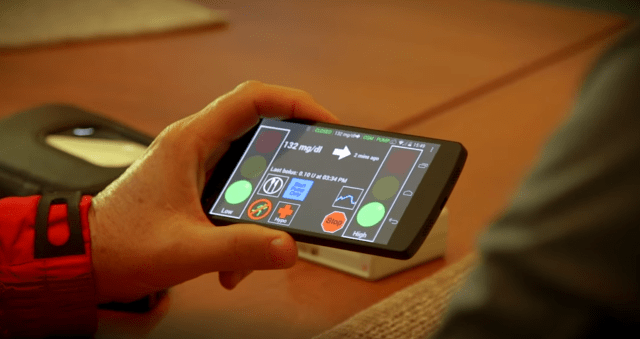Smartphone-Based System Could Be Your Pancreas, Diabetes 1 Within Reach
University of Virginia Center for Diabetes Technology Director Boris Kovatchev has been working with his team of researchers on an artificial pancreas arrangement system since 2006. With assistance from Francis Doyle III, Dean of Harvard’s Paulson School of Engineering and Applied Sciences, this is not only a research project but an eventuality that is set to enter two final phases of international testing this year.
The combination of a sensor, a wearable insulin pump and a smartphone system would certainly save diabetics from constant finger pricks and manual insulin injections; by first monitoring blood-sugar levels and then delivering the required amount of insulin.

The process starts with the tiny blood-glucose sensor, sized like a flash drive, that reads glucose levels and reports them to a customised android app on the smartphone placed in the vicinity. What’s more, the app’s algorithm analyses the data and wirelessly directs the insulin pump to deliver insulin into the blood stream. A very fine needle attached to the pump finishes the job.
This “closed-loop†system has currently been designed to combat type 1 diabetes, with an effort to change changed the lives of the 1.25 million people who are forced to check blood-sugar levels multiple times a day and then manually inject insulin, leading to monotony and uncertainty both.
Kovatchev’s original version of the smartphone app aimed to keep blood-sugar levels at a specific target number, which often caused under- or over-shooting during manual blood-sugar management. However, with Doyle’s new algorithm coming in, the focus now is on targeting “zones†of blood-sugar levels. These short ranges are easy to attain and more stable, erasing the need for constant adjustment. The new algorithm also adapts to sugar shifts and insulin sensitivity on an individual level.
The National Institutes of Health has granted $12.6 million to this novel project, and the Food and Drug Administration has agreed to collaborate with it for the trials that will take place across various US, France, Italy and Netherlands at various clinics. The first trial will include 240 patients.
The researchers hope to get done with this procedure within 4 years, but we cannot help feeling impatient.
Source: #-Link-Snipped-#
The combination of a sensor, a wearable insulin pump and a smartphone system would certainly save diabetics from constant finger pricks and manual insulin injections; by first monitoring blood-sugar levels and then delivering the required amount of insulin.

The process starts with the tiny blood-glucose sensor, sized like a flash drive, that reads glucose levels and reports them to a customised android app on the smartphone placed in the vicinity. What’s more, the app’s algorithm analyses the data and wirelessly directs the insulin pump to deliver insulin into the blood stream. A very fine needle attached to the pump finishes the job.
This “closed-loop†system has currently been designed to combat type 1 diabetes, with an effort to change changed the lives of the 1.25 million people who are forced to check blood-sugar levels multiple times a day and then manually inject insulin, leading to monotony and uncertainty both.
Kovatchev’s original version of the smartphone app aimed to keep blood-sugar levels at a specific target number, which often caused under- or over-shooting during manual blood-sugar management. However, with Doyle’s new algorithm coming in, the focus now is on targeting “zones†of blood-sugar levels. These short ranges are easy to attain and more stable, erasing the need for constant adjustment. The new algorithm also adapts to sugar shifts and insulin sensitivity on an individual level.
The National Institutes of Health has granted $12.6 million to this novel project, and the Food and Drug Administration has agreed to collaborate with it for the trials that will take place across various US, France, Italy and Netherlands at various clinics. The first trial will include 240 patients.
The researchers hope to get done with this procedure within 4 years, but we cannot help feeling impatient.
Source: #-Link-Snipped-#
0
